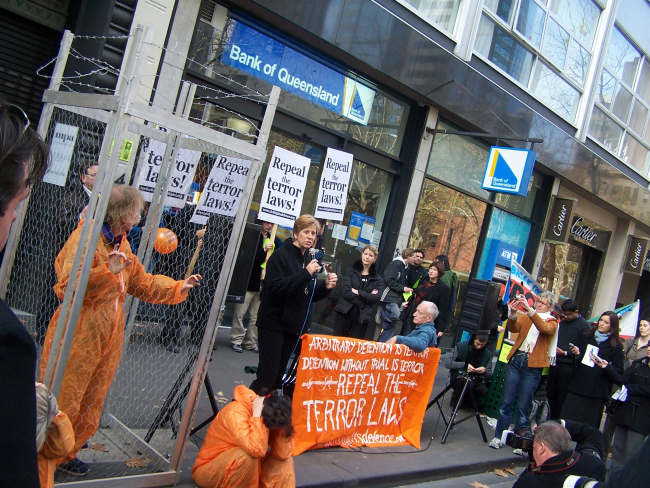Bias is a fickle, far-reaching and manipulative beast
What a terrible day: a day when I am lexically stumped and mentally stupefied. However, it was also the day for the Wellcome Trust / Guardian Science writing competition.
Having made a complete hash of writing something before the day, and shedding a few facial expressions of despair and horror at my monstrous creation, I post the submission here in morbid loathing - the wordy boredom I created this late afternoon. Commiserations indeed.
- -

If you ask a scientist their idea of bias, they may mention statistical probabilities. If you ask an immigrant about bias, they may describe how culture enforces a lifestyle. As a Russian scientist I experience both, and am constantly fascinated by their often surprising and unexpected reach. Not only does bias extend from the recent protests on sexism (Slut Walks), benefit-cuts (Cameron effigies) or drug-trials (the voice of Ben Goldacre). Bias proliferates through research, human interaction and down to the very way we converse.
Today when someone says “by looking at these facts, x-statement is true” I repress a small harrumph of disbelief. Who said these are facts? Where is your error-check analysis? Where is your consideration of bias?
In the study of patterns and causes of diseases, the gold standard for measuring epidemiology bias in clinical trials is by use of placebo, population randomization and blinding. Yet with all this fool-proof testing, pharmaceutical companies can get away with playing business chess: a game where undesirable pieces may be quickly shuffled under the table. With around half of all trials buried and the majority of negative trials unpublished, this publication bias can have devastating effects upon healthcare. The trust we place in healthcare professionals relies on this data, with errors a dangerous consequence for health.
With the recent trend in the “Science of Optimism”, poor health may actually be due to internal biases rather than the outcome of power-hungry conglomerates. Research shows that optimism may well be the key to gold, glory and most importantly, good immune function. Modifying certain reaction from “I failed” to “this didn’t go well, but it’s not my fault” may be the key to not only increasing our productivity and success, but to fighting off cancer and depression. In neuroscience this is called “attentional bias modification”: changing our inherent inclination to a negative bias.
Unfortunately not all of these biases can be shifted. Whilst proponents of groups such as Twitter’s “Everyday sexism” point out blatant misogynists, it’s the more subtle trends and statistics that indicate a deeper gender divide. PLOS journalists recently highlighted how media writers always ascribe an extra praise of “a woman did this” when describing a scientific or political achievement: an unnecessary label for a professional. More strikingly, another example includes research showing a clear-cut gender bias in hiring assessments. Amongst a group of academics, both men and woman of the faculty looked through a series of applications for a scientific post; although the genders were randomly assigned to each batch of CV’s, the academics deemed the “male” applicants as more competent, more worthy of mentoring and befitting of a higher salary.
Our judgement of people is not biased from only gender or race, but extends beyond cultural attitudes and into the sensory data we are constantly gathering. Not only do we judge people by how they look or sound, but arbitrary factors influence our feelings about them. Simple changes such as a forced grin (try putting a pen between your teeth), or doing ‘thumbs up’ will make us feel more positive with an interaction. Likewise a frown, ‘thumbs down’ or gesturing a swear word will reflect on the object of our interaction to make it seem more unpleasant or rude. Ascriptions of power to bosses and employees vary depending on what visual representation we see of the relationship. Give us a flow chart with short spatial distance between the boss and employee, and we’ll view their influential ability as small.
Such subtle influences extend to changes in how we live due to our language. Some cultures such as the Native American Hopi can only describe people and objects in spatial relation to themselves. By contrast the Nootka, indigenous to Canada’s Pacific coast insert descriptions while discussing a person: thus not saying “Quasimodo”, but “Quasimodo-hunchback”. To bring this back to bias in our lives: Flemish and English vary to a large degree as a change in linguistic structure. Whilst the Flemish can say “it rained yesterday, it rained tomorrow”, the English cannot. We have what the economist Keith Chen calls a “futured” language. That is, we have grammatical differences that distinguish a time frame. A fascinating consequence when comparing the living situation of people with future-less and futured language is, having accounted for almost all variables, financial position. Futured language families on average have 30% more savings per year and 25% more retirement savings. Even their health is better, seemingly as a consequence of how their language forces them to view time. While this isn’t what we normally call a language bias, it is nevertheless a condition that we don’t usually choose, but which alters how we live.
Scientists notice bias everywhere – they are not limited to research experiments or bank balance sheets, but affect us in numerous and surprising ways. They are not limited to the gory realms of bigotry, but may explain instead our economic crisis and relation to not only international issues, but to understanding of each other on a more basic level.